Publications
Articles, publications, books, tools and multimedia features from the U.S. Institute of Peace provide the latest news, analysis, research findings, practitioner guides and reports, all related to the conflict zones and issues that are at the center of the Institute’s work to prevent and reduce violent conflict.
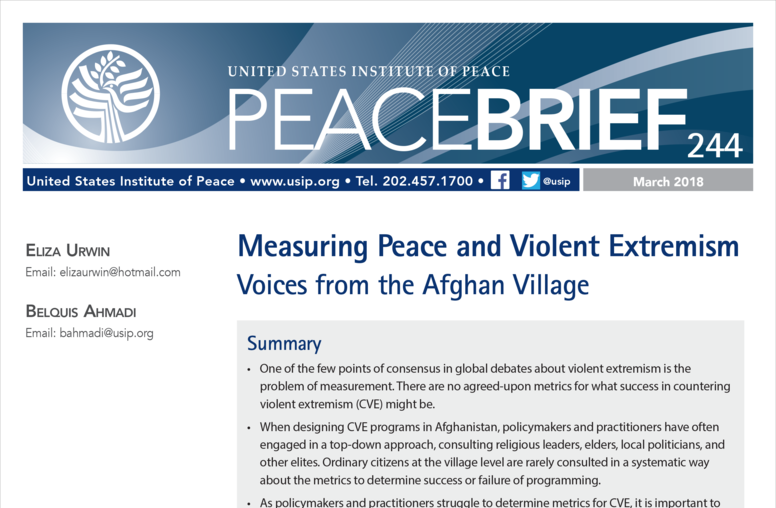
Measuring Peace and Violent Extremism
Policymakers and practitioners have often engaged in a top-down approach in the design of programs to counter violent extremism in Afghanistan. This top-down approach relies heavily on the insights of religious leaders, elders, politicians, and other elites while failing to incorporate...
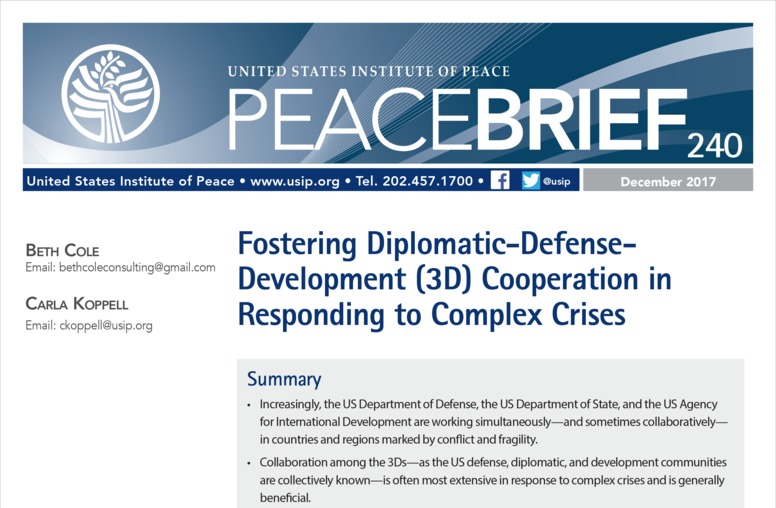
Fostering Diplomatic-Defense-Development (3D) Cooperation in Responding to Complex Crises
The US diplomatic, defense, and development communities (known as the “3Ds”) increasingly find themselves working together to tackle complex crises. This collaboration has already proved its worth, but how can it be made even more effective? A recent USIP research project sought to...
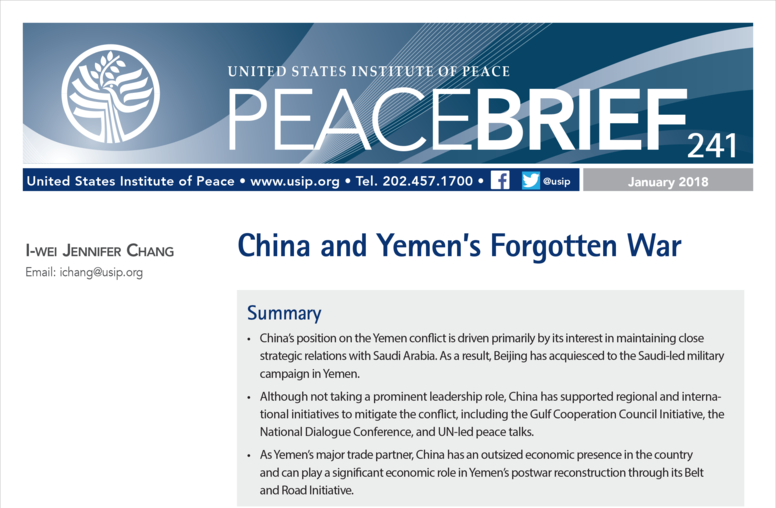
China and Yemen’s Forgotten War
Yemen is facing an acute humanitarian crisis after nearly three years of civil war, with more than 10,000 deaths and three-quarters of the country’s population in dire need of humanitarian assistance. Although eschewing a leadership role, China has supported regional and international efforts to mitigate the...
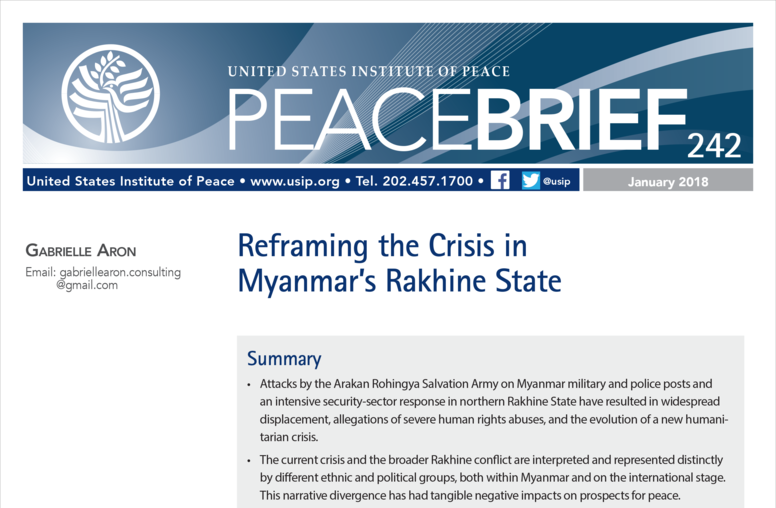
Reframing the Crisis in Myanmar’s Rakhine State
In the aftermath of attacks by the Arakan Rohingya Salvation Army and subsequent military clearance operations, two competing narratives have emerged. One frames the attacks as a critical threat to national security and the majority cultural-religious status quo. The second focuses on the human cost...
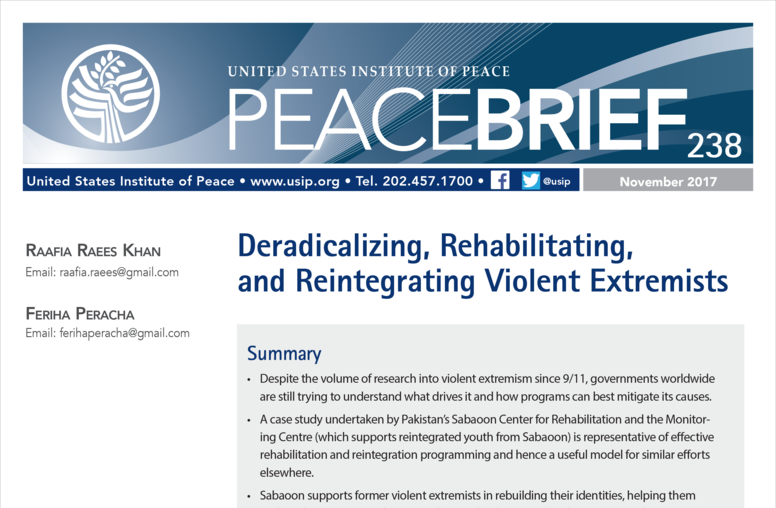
Deradicalizing, Rehabilitating, and Reintegrating Violent Extremists
Despite the increasing body of research on violent extremism, questions remain about why individuals join such groups and why recidivism remains common among those who have undergone deradicalization
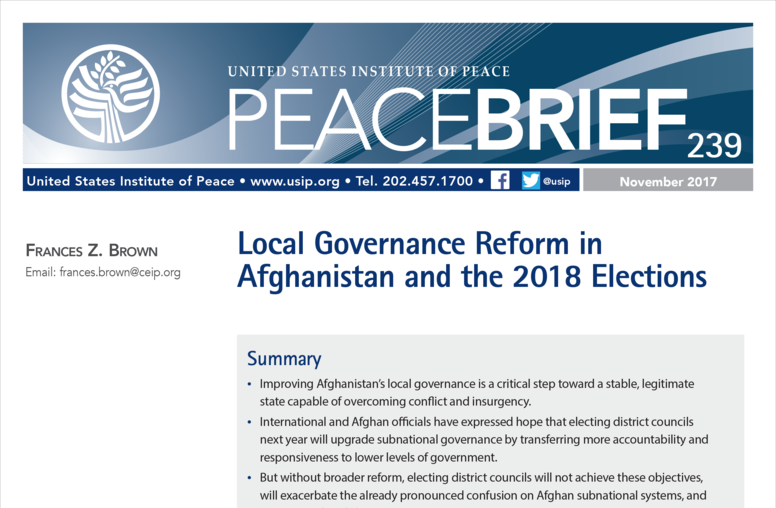
Local Governance Reform in Afghanistan and the 2018 Elections
This summer, Afghanistan’s Independent Electoral Commission announced that its long-delayed elections to launch district councils will be held in July 2018. The international community has formally welcomed the statement, noting that district councils are both long overdue and a manifestation...
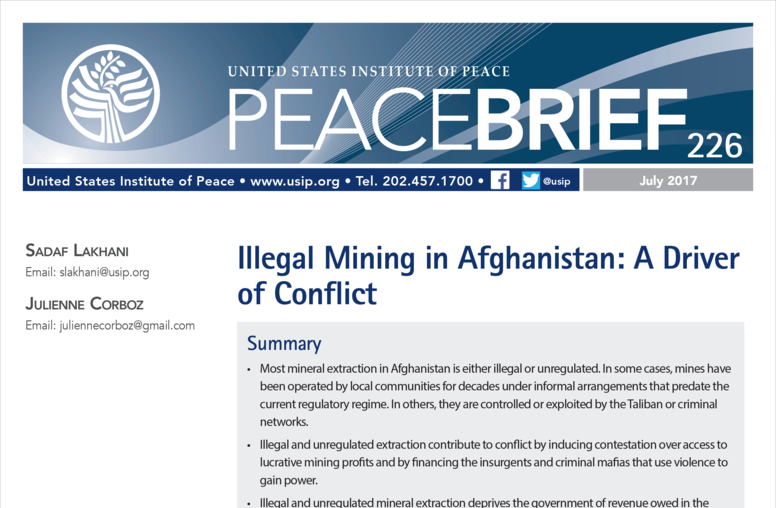
Illegal Extraction of Minerals as a Driver of Conflict in Afghanistan
Based on qualitative surveys and focus group discussions with communities in four Afghan provinces, this Peace Brief analyzes how nonstate actor control over small-scale mining sites and illegal extraction contributes to conflict, the local political economy, and the incentive structures that support illegal extraction.
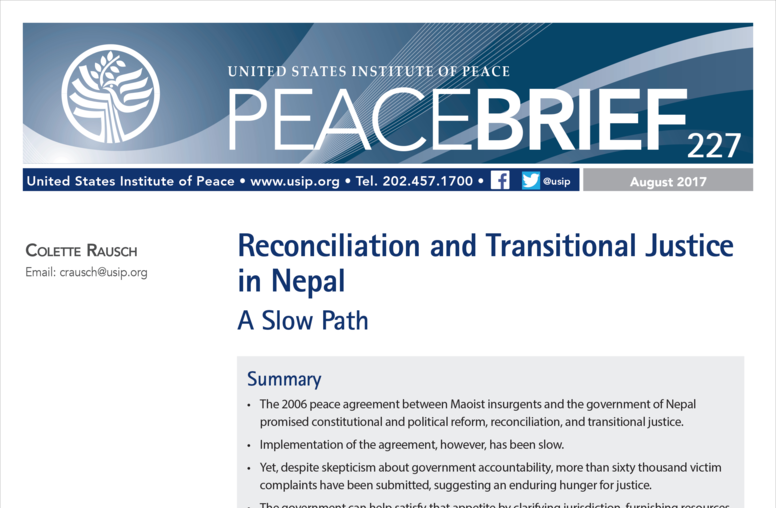
Reconciliation and Transitional Justice in Nepal: A Slow Path
In 2006, the government of Nepal and Maoist insurgents brokered the end of a ten-year civil war that had killed thousands and displaced hundreds of thousands. The ensuing Comprehensive Peace Agreement laid out a path to peace and ushered in a coalition government. Nepal’s people were eager to see the fighting end. Their political leaders, however...
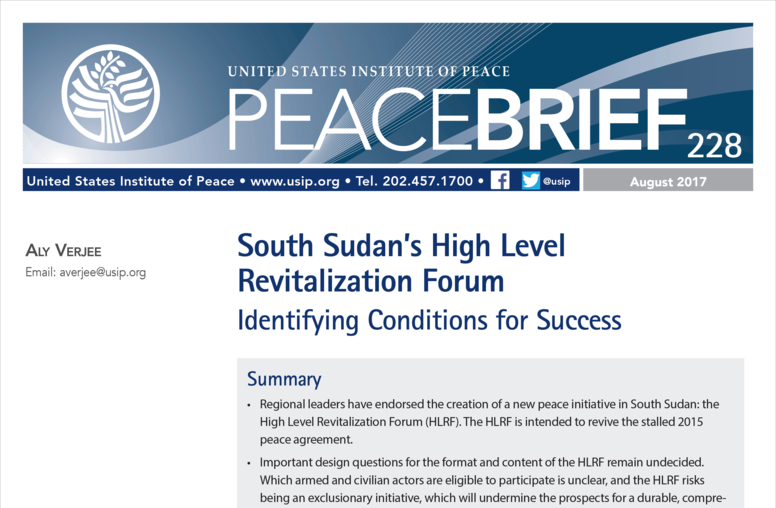
South Sudan’s High Level Revitalization Forum
Regional leaders have endorsed the creation of a new peace initiative in South Sudan: the High Level Revitalization Forum (HLRF). The HLRF is intended to revive the stalled 2015 peace agreement in the country. This Peace Brief offers recommendations...
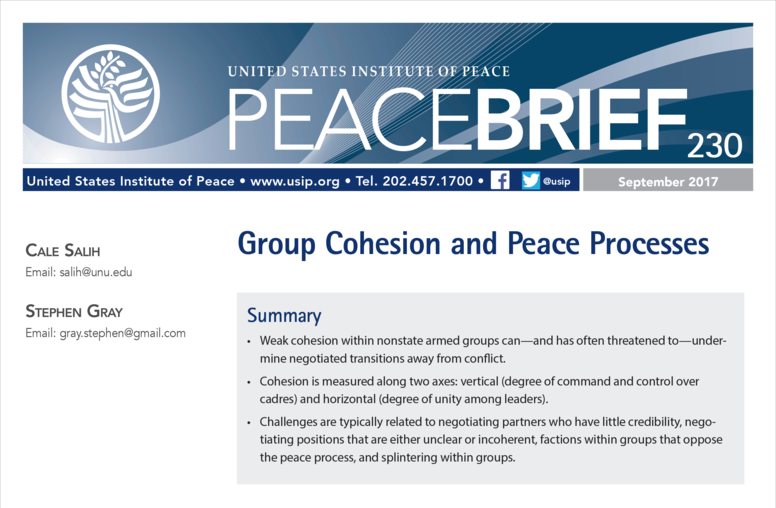
Group Cohesion and Peace Processes
Drawing on a wide range of cases, including Burma, Colombia, Senegal, and Uganda, this Peace Brief discusses the internal cohesion of nonstate armed groups, explains how weak cohesion can undermine a peace process, and offers various strategies that those supporting peace processes can deploy to mitigate such risks.